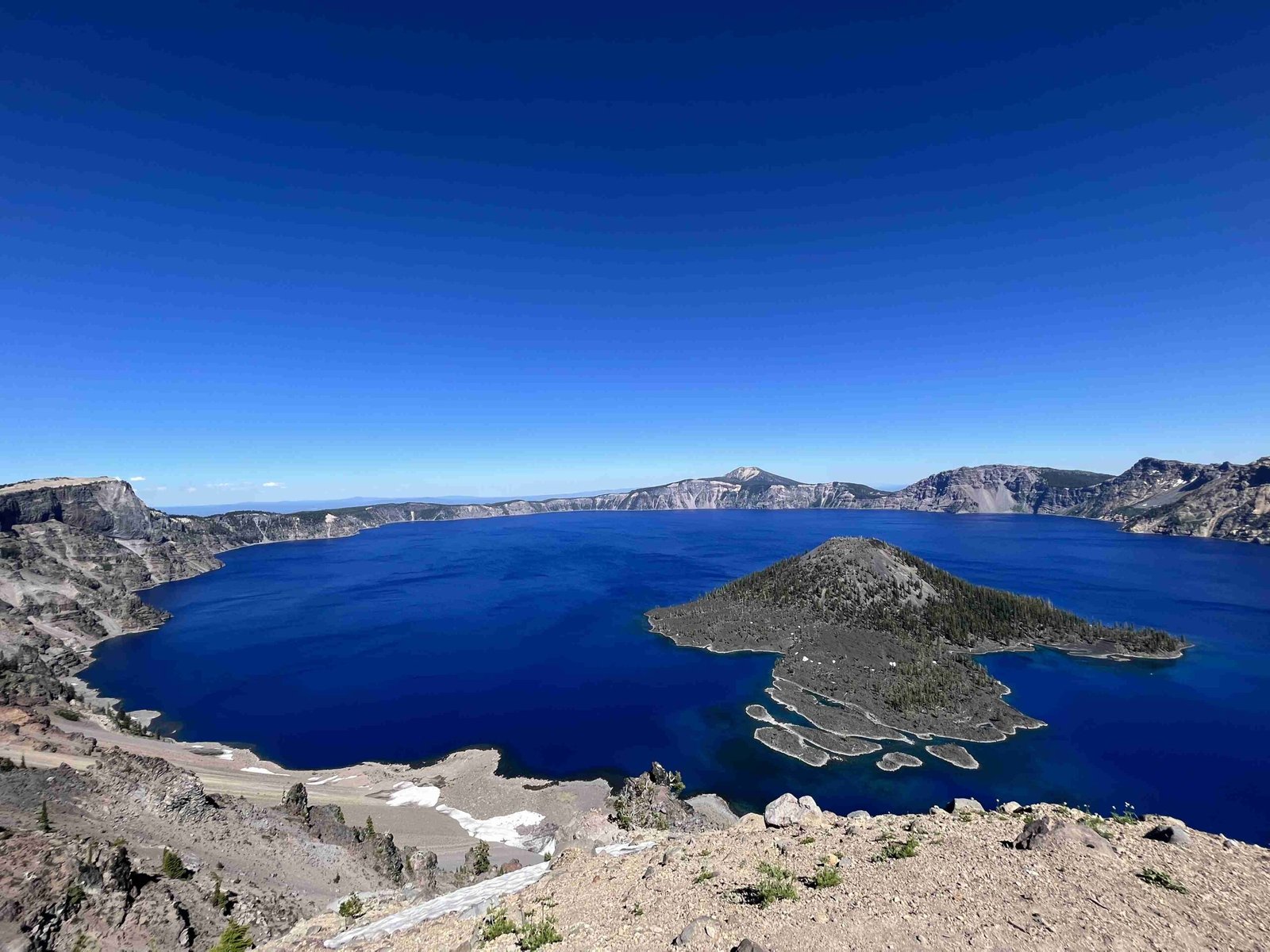Crater Lake hikes in Colorado offer breathtaking scenery and challenging trails. This guide covers three popular Crater Lake hikes: Indian Peaks Wilderness (15 miles round trip), South Boulder Creek (6.8-7.5 miles round trip), and Maroon Bells (7 miles round trip). Each trail features unique landmarks, varying difficulty levels, and stunning alpine views. Hikers can expect elevation gains ranging from 2,500 feet to over 3,000 feet, with the best hiking season typically from June to October.
What Are the Different Crater Lake Hikes in Colorado?

Colorado boasts several Crater Lake hikes, each offering a unique experience:
- Indian Peaks Wilderness Crater Lake
- Round Trip Distance: 15 miles
- Trailhead: Monarch Lake Trailhead
-
Notable Landmarks: Mirror Lake, waterfalls along Buchannan Creek, Hell Canyon
-
Crater Lakes via South Boulder Creek
- Round Trip Distance: 6.8-7.5 miles
- Trailhead: East Portal Trailhead near Moffat Tunnel
-
Notable Landmarks: Lower Crater Lake, Upper Crater Lake, optional climb to alpine lake
-
Maroon Bells Crater Lake
- Round Trip Distance: 7 miles
- Trailhead: Maroon Bells Visitors Center
- Notable Landmarks: Aspen groves, views of Maroon Bells, intersection with Four Pass Loop
What Are the Elevation Gains for Each Crater Lake Hike?

The elevation gains for each Crater Lake hike vary significantly:
| Hike Location | Starting Elevation | Elevation Gain | Highest Point |
|---|---|---|---|
| Indian Peaks | 8,400 ft | 2,500 ft | 10,900 ft |
| South Boulder Creek | 9,211 ft | 1,389 ft | 11,060 ft (optional) |
| Maroon Bells | 9,585 ft | Not specified | Above 9,585 ft |
When Is the Best Time to Hike Crater Lake in Colorado?
The optimal hiking season for Crater Lake trails in Colorado typically runs from June to October. However, each location has its specific considerations:
- Indian Peaks Wilderness: Best from July to October
- South Boulder Creek: Accessible June to October, with heavy usage
- Maroon Bells: Prime hiking from July to October
Factors to consider:
– Weather conditions can change rapidly in high-altitude areas
– Summer months see the heaviest trail usage
– Some trails may have restricted access during peak times (e.g., Maroon Bells requires bus transportation midday during summer)
What Amenities Are Available at Crater Lake Trailheads?
Hikers can expect varying levels of amenities at each trailhead:
Indian Peaks Wilderness – Monarch Lake Trailhead
- Ample parking
- Restrooms available
- Nearest towns: Granby and Grand Lake
South Boulder Creek – East Portal Trailhead
- Large parking area
- Restrooms (may be seasonal)
- Closest town: Rollinsville
Maroon Bells – Visitors Center
- Limited parking (bus service available)
- Restrooms and water fountain
- Located near Aspen
How to Prepare for a Crater Lake Hike in Colorado?
Proper preparation is crucial for a safe and enjoyable Crater Lake hike:
- Physical Conditioning
- Train for high-altitude hiking
-
Build endurance for long distances and elevation gains
-
Essential Gear
- Sturdy hiking boots
- Layered clothing for changing weather
- Sun protection (hat, sunscreen, sunglasses)
-
First aid kit
-
Navigation
- Obtain detailed trail maps
-
Bring a compass or GPS device
-
Hydration and Nutrition
- Carry plenty of water
-
Pack high-energy snacks and meals
-
Weather Awareness
- Check forecasts before departing
- Be prepared for sudden weather changes
What Wildlife Might Be Encountered on Crater Lake Hikes?
Colorado’s Crater Lake trails offer opportunities for wildlife viewing:
- Marmots
- Pikas
- Mountain goats
- Elk (in certain areas)
- Various bird species
Hikers should maintain a safe distance from wildlife and never feed animals.
Are Permits Required for Crater Lake Hikes in Colorado?
Permit requirements vary by location:
- Indian Peaks Wilderness: No day-use permit required, but overnight camping permits are necessary
- South Boulder Creek: No permits required for day hikes
- Maroon Bells: No hiking permits required, but parking or shuttle reservations may be necessary during peak season
Always check current regulations before your trip, as requirements can change.
How to Practice Leave No Trace on Crater Lake Hikes?
Preserving Colorado’s natural beauty is essential. Follow these Leave No Trace principles:
- Plan ahead and prepare
- Travel and camp on durable surfaces
- Dispose of waste properly
- Leave what you find
- Minimize campfire impacts
- Respect wildlife
- Be considerate of other visitors
By adhering to these guidelines, hikers help maintain the pristine condition of Crater Lake trails for future generations.
Crater Lake hikes in Colorado offer diverse experiences for outdoor enthusiasts. Whether you choose the challenging 15-mile round trip in Indian Peaks Wilderness or the more moderate 7-mile journey at Maroon Bells, proper preparation and respect for the environment ensure a memorable adventure in Colorado’s stunning alpine landscapes.
References:
1. Crater Lake Hike in the Indian Peaks Wilderness
2. Crater Lakes (#819) – USDA Forest Service
3. Crater Lake (the Maroon Bells) – Hike Snowmass
4. Crater Lakes Trail – Colorado Trail Explorer
5. Crater Lakes Hike – ProTrails

